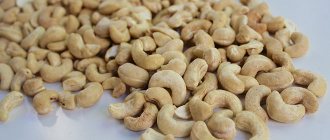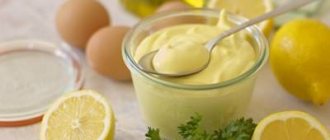Many young mothers want to know for sure which foods can be consumed and which ones should be avoided after the baby is born.
Fermented milk products during breastfeeding are often very useful and allow the intestines to function normally, but in rare cases you still have to abstain from them. Let's figure it out and find out when you can buy them without much fear, and in what situations it is better to do without them.
Let's start with the fact that all dairy products can be divided into fermented milk and dairy products. Dairy products are very undesirable during breastfeeding, especially in the first month after childbirth. But cottage cheese, kefir and fermented baked milk are often recommended for a nursing mother to consume in the first weeks after the birth of the baby.
If the child does not have an individual intolerance to such products, then the mother can buy fermented milk products with peace of mind and eat them daily.
So, cottage cheese is very useful because it is the main source of calcium, which will be very useful for a nursing woman. By regularly eating cottage cheese, you can maintain healthy teeth and beautiful nails.
Kefir is an excellent drink, especially when it comes to young mothers with problematic digestive tracts. Often after natural childbirth and during breastfeeding, such a delicate problem as constipation can occur.
If you drink a glass of sour kefir in the morning and eat a little natural yogurt during the day, you can improve your bowel movements and at the same time strengthen the microflora in your intestines.
However, only those fermented milk products that are of natural origin and were prepared correctly fall into the category of permitted products. In this case, there will be no harmful chemicals or aromatic additives inside the package or bottle, and the product itself will retain a maximum of beneficial lactobacilli.
If, when feeding a newborn, you get carried away with store-bought yoghurts and frankly inorganic fermented milk products, you can harm both your body and the health of the baby. The fact is that an infant is very sensitive and susceptible to any allergens and dyes, flavors and other chemicals. Therefore, in the first months after childbirth, such food is undesirable.
Often, young mothers mistakenly believe that their babies are allergic to or intolerant to fermented milk products, when after a package of yogurt the mother drank, the baby develops red spots on the face or flaky areas all over the body. But usually this is not due to the fermented milk product, but due to the fault of artificial preservatives.
If you use homemade and natural yoghurts, cottage cheese and drinks, then they can be consumed already in the second week after childbirth.
However, in the first month after giving birth, refrain from complex recipes and those products that contain additives and fillers, especially fruit ones. Such dishes can be included in your menu only in the second month after the baby is born, and if he is allergic, then even later.
What vegetables and in what form can a nursing mother eat?
It's no secret that when breastfeeding, women's menu consists of a limited food set. Fortunately, this lasts only 2-3 months from the moment the baby is born. As he grows up, the taboo on most types of foods is lifted, and the mother gradually returns to her usual diet, adjusted towards a healthy diet.
In this case, vegetables become its basis, and the baby learns to digest plant food, receiving from it all the useful things that it accumulated during the period of active maturation.
So, the allowed vegetables during breastfeeding are as follows:
- Potatoes
- they are rich in thiamine - an invaluable amino acid for a child; - Carrots
– they contain a lot of carotene and vitamin B6, a substance involved in the metabolism of proteins and fats and their complete absorption by the body; - Beetroot
– it contains a huge amount of the “health vitamin” (vitamin C); - Cucumbers
– they contain iodine, which is necessary for the health of the thyroid gland; - Zucchini and zucchini
- from them the baby and mother receive potassium, calcium, magnesium, copper and iron; - Sweet pepper
is a source of rutin and potassium - substances that strengthen capillaries; - Tomatoes
are good for anemia, since they contain sufficient amounts of iron and zinc; - Eggplants
- they are famous for the presence of a huge amount of pectin - substances that stabilize metabolism; - Green onions
are rich in flavonoids, which are especially important given the deteriorating environmental situation; - Celery
is a natural remedy for bloating, enriched with vitamins B and C and carotene; - Broccoli
is a storehouse of beta-carotene and substances that increase metabolism in the body; - Cauliflower
- it improves intestinal microflora and contains folic acid, which is necessary for the mental development of a child.
As you can see, the food variety is quite extensive, and if you consider that these products can be served prepared using several technologies, then you no longer have to worry about satisfying taste needs.
Ideally, it is advisable to consume vegetables during breastfeeding after heat treatment. They can be:
- boil;
- put out;
- steam;
- bake.
Favorite fried potatoes are contraindicated for a nursing mother. But, it can be replaced with an equally tasty dish - baked potatoes or tender milk puree with herbs.
Carrots, zucchini, eggplants, tomatoes and the same potatoes can become components of a vegetable stew, which is also recommended for consumption during breastfeeding. By the way, zucchini can help mom cope with swelling, so avoiding them at the height of the vegetable season means harming yourself.
“Local” cucumbers and onions, naturally in season, are available to mother in raw form and in almost unlimited quantities. As a rule, these vegetables do not have a gas-forming effect during breastfeeding and do not cause digestive problems for the baby.
Cauliflower and broccoli are delicious when steamed or added to soup. In this form, they retain all their vitamins and allow you to successfully experiment with familiar types of dishes.
For example, broccoli is a popular restaurant ingredient that can be used to make a delicious creamy soup with croutons.
As for beets and sweet peppers, you should introduce them into your diet carefully and slowly. It’s also worth mentioning raw carrots. Sometimes, these vegetables cause allergic reactions in children: redness on the skin, rash, etc.
Despite the fact that all the gifts from fields and vegetable gardens have certain valuable properties, there are still some that a nursing mother should avoid. First of all, these include products that, when consumed, cause a child to develop a congenital allergy.
They can be radishes, horseradish, tomatoes, eggplants, radishes, onions and many others. other. This also includes garlic, which when added to milk gives it a bitter taste and a characteristic repulsive odor.
However, proper heat treatment does not give the allergen/odor a chance to live.
Next, the list is replenished with non-seasonal vegetables imported from warm countries or grown in greenhouses. As a rule, there is little benefit from them, but there is more than enough harm, since farmers keep the processing methods, including methods for stimulating their growth, under seven seals.
And lastly, when breastfeeding you should not eat vegetables from jars. This refers to pickles, aromatic and tasty, but absolutely contraindicated for a nursing mother. They may contain dangerous compounds - vinegar, salt, hot spices and seasonings. The baby should get acquainted with them last, giving his digestive organs the opportunity to gain strength and develop the necessary set of enzymes.
If you have any difficulties or problems, you can contact a certified specialist who will definitely help!
It is known that yellow, red and orange vegetables often cause allergies and are not recommended for those who are prone to negative reactions, as well as for young children. Since allergens can be passed through mother's milk to the baby, foods such as bell peppers should be introduced very carefully when breastfeeding.
Bell pepper, also known as sweet pepper or paprika, are different names for the same vegetable. It has many different varieties, differing in size, color and taste, but is consistently considered one of the most popular fruits in the cuisines of the world. Naturally, if a woman is used to cutting peppers into salads, adding them to hot dishes and loves lecho, the question of whether all this can be eaten while breastfeeding is relevant for her.
In addition to the fact that the addition of peppers gives food a unique taste and aroma, it is also a unique product in its composition.
It contains a lot of vitamins, microelements and other useful substances:
In addition, the vegetable contains a lot of water and fiber, it is approved for diabetics and those losing weight. The combination of vitamin C and rutin tones vascular walls, protects against colds and aging. And all this with a calorie content of no more than 40 kcal. Is it possible to refuse such a product? There is no need to refuse; it is enough to introduce it into your diet correctly.
How dangerous is the product?
The only serious danger when consuming baked milk is an allergic reaction. If a person is allergic to regular milk or baked milk, an allergic reaction will also follow. Due to the high concentration of the allergen for the same volume of product, the allergy can manifest itself much more strongly.
If a mother or baby experiences nausea, skin rashes, or stomach upset after drinking milk, avoid the product for a while and consult a doctor. Make sure that this is a reaction to baked milk, and next time introduce it gradually, starting with a spoon a day.
also be dangerous for obese nursing women.
, where, unlike fresh, it contains a lot of fat and is extremely high in calories.
Baked milk is certainly a healthy product, but if consumed in excess, it should be remembered that due to the high amount of fat, it can cause weight gain and obesity.
How to properly introduce it into the diet?
First of all, it is worth remembering that baked milk is more dangerous than fresh milk.
, so you should use it more carefully. Starting from the second or third month after the birth of the baby, if neither the woman nor the baby is allergic to cow's milk, you can take this product little by little.
Divorced from my husband five years ago. From the marriage there are two children aged 9 and 11 years. I’m tired of solving and carrying all the family problems on myself, and besides, my husband started going out. I left him, as they say, “with one knot”... All this time I was building a house from scratch, paying off three loans, raising children, it wasn’t easy. Thank God I was lucky and I changed my job and started earning more. Life began to get better, more or less. A year ago I met a man... And Oh God... This is the man I dreamed of. The complete opposite of my ex-husband. And care and attention. One thing... He is a single father... His wife left him and their child and went to his best friend. In principle, this situation did not frighten me and I thought, well, where are there two children and the third will not be a hindrance... But it turned out that everything was not so simple... I, like a wise woman, immediately began to look for an approach to the child, bought her toys, completely replaced her wardrobe, the poor child didn’t even have decent things, everything was so washed out…. I bought her a bunch of beautiful rubber bands for the garden. I tried my best to please. The girl is 5 years old... The child is problematic, she doesn’t understand anything, in the kindergarten they complain about her that she doesn’t listen, doesn’t want to study.... At home he does random things and doesn’t respond to comments. She says that she understands and immediately does it again!!! The mother does not participate in any way in raising the child, she does not pay child support, citing the fact that she is paying off a joint loan... Oh well, God be with her... We all lived together for a year... I thought that she would change and we would live happily... But nothing changed... I was infuriated by her behavior and because of this I was constantly in a bad mood, so Alexei and I started arguing. I couldn’t tell him that his daughter infuriates me... I understand that he loves her more than life itself... I thought about breaking up, but I love him and he loves me very much... and he communicates well with my children, he goes to chess with his son... I don’t know what to do.. It seems to me that his daughter will never change and I will never be able to love her….
310
Olga Morozova
Hello. I’ve already created a topic here about neighbors’ dogs, how to keep them away. In the fall, in September, a neighbor’s dog killed our kitten, in the middle of the day, one might say, in front of the neighbor (the dog’s owner) and ours (my son and I saw it). We simply didn’t have time to do anything, how much does a 3 month old kitten need? At that time, I expressed a lot of things to my neighbors because of their dogs. They apologized, promised to look after them, but at the same time the phrase was said: hunting dogs (ordinary mongrels at the same time) and will still attack cats, they made me happy (((To be honest, I didn’t want to have more cats, but in October for my birthday my daughters brought her a gift - a kitten.. There is a litter box at home and the cat goes there, but only for small periods, but for the most part she is used to going outside. They let her out, looked after her all the time. And then that week the neighbor's dog jumped over the snowdrifts into our yard and grabbed the cat right at the porch. At that time I was hanging out laundry to dry under the canopy, he didn’t see me, but I didn’t see/hear him right away - he attacked without a sound. I jumped out when the cat squealed. I fought him off, and he slashed teeth on the sleeve of my jacket and tore my sleeve. When I had calmed and treated the cat a little and calmed down myself, I went to the neighbors and said I would complain. The weekend passed, they did not take any measures (the dog was running along the street and continues to run). Today I wrote complaint to the local police officer, but I was struck by his words, saying that we cannot take any measures against the dog’s owner, there is no punishment or fine for this. Only if you go further and sue them for material and moral damage. But I don’t want to go to court over a cat and a torn sleeve. Are there really no laws so that the local police officer, relying on them, can somehow influence the owners of dogs who strangle cats while walking on their own and in other people’s yards? In general, I wrote a lot, just if you’re going to start a war with your neighbors, then rely on the laws... Maybe someone can tell me something...
263
Elena Nefedova
I’ll say right away that I saw doctors when I was 2 years old, and no one saw any problems. Is this character? The youngest daughter is 2.1. He doesn’t speak very much, there are no phrases, probably 20-30 words. The rest is incomprehensible. She is efficient, understands everything, responds to names, fulfills requests. She goes to the potty and eats herself. But for the last 4 months, her behavior is just out of whack... She freaks out if something doesn’t suit her. And when he freaks out, he starts throwing everything. That is, he specifically takes everything that is at hand and throws it. Or brushes it off the table. A toy, remote control, cup - whatever. Very touchy. If she throws something, I can slap her on the hand. That is, in terms of strength - as soon as I put my hand on her arm, there’s no talk of even the slightest pain - she starts roaring and screaming, and turns all red. And until either I give up or someone comes up to take pity on her, she won’t calm down. Another funny thing is that if he doesn’t want to go somewhere on the street, he sits on the ground. And that's all. Either wait for half an hour and persuade him, or grab him by force and run. If I leave, he won’t run after me. Well, it also happens at home that he can lie down on the floor in protest.
Is this even normal? Nothing like this had ever happened to the eldest. So I’m in a slight shock, although everyone around me just says how lucky I am that my youngest daughter is so calm and obedient. Whereeeee? By the way, they adore her in the garden, she just behaves perfectly there. How is that? And this behavior happens to me, and to my husband, and to my grandparents!!
211
Katerina
Topic to chat. Do you think about your children’s skills? Will explain. A friend’s son is a couple of months younger than mine, and so she proudly sends me a video of her baby crawling across the floor like a worm. She happily writes that he is starting to crawl. But for me, it’s just fussing on the carpet))) Or he kicks his butt back, and she thinks that he gets on all fours. I'm just either too critical of my son or a realist. But until he specifically crawled at least 30 centimeters, I somehow didn’t say that he was starting to crawl. And if he sits with support on one arm, he is not sitting yet. Which camp will you join and why?
203
Anonymous
I got a job six months ago. The child is 3.5. He goes to the garden. I walked normally in the fall. I went out for the full day. And now I’ve been sitting at home for almost the entire month of February and half of March. I got a job based on an acquaintance, no one said anything to me about absences, but last time they already hinted that something needed to be resolved with sick leave. I found a nanny through an agency, but my mother panicked that there was no need for a nanny (my mother is also a commander), she herself meets him from the garden, but sick leave says we will sit in turns, 2 days she, three me. But often she either flies away somewhere, then she’s at the theater, or she doesn’t want to at all and everything is unreliable. And nothing good came of it. The nanny eventually found some other shift work and now cannot come on call, only on her weekends. Mom also teases me that I will give half of my salary to the nanny. I can't work normally. I don’t want to leave, because my husband now doesn’t earn enough for everything, I buy clothes for myself, for women’s necessities, plus I pay for vacation, I can save for a mortgage, we are saving. Mom realized that we just couldn’t save up for an apartment, she stopped reproaching us for buying an apartment, before this she constantly asked her husband what he was thinking about when he started a family. Although my husband considers himself a breadwinner, he doesn’t have enough for everything. And I don’t want to lose my job, experience, qualifications. It’s also very difficult mentally to sit with a child for 2 weeks. I feel better at work, but I can’t get there. Only goes to the garden for 5 days and again at home for 2 weeks. I'm constantly nervous. How can you work and watch your child at the same time? How do women do this?
160
LTA LTA
Good afternoon, dear forum members. We need a collective mind, my brain is no longer working. Given: there is a small studio for preparing for the Unified State Exam and the Unified State Exam: Russian, English, Society and Mathematics. I am planning to expand - open a second one in another area, and change the name of both studios. The so-called rebranding. Now the name is AbvEGE. I want something interesting and to the point. My husband suggests “studio for preparing for the Unified State Exam last name first name.” I don't like it, it's too pretentious. The room is small, three classrooms and an admin desk, behind which I stand if there is no lesson. You can't call them courses. I would be grateful for advice: what can be called more interesting.
82
The positive effect of dairy products on the human body has been proven for a long time, but even the most harmless fermented baked milk during breastfeeding can provoke a negative response from the baby’s digestive system if it is not drunk according to the rules. Some whole milk products should not be consumed at all during lactation, including in minimal quantities.
To understand why some drinks and dishes are allowed, while others are better excluded from the diet, it is necessary to understand the principle of their effect on the systems and organs of the newborn. At the same time, one should not forget about the individual developmental characteristics of children; each component or finished dish must be introduced under constant monitoring of the baby’s condition.
Introducing sweet peppers into the diet
And yet we must not forget that despite all the beneficial qualities, sweet peppers are a strong allergen. Therefore, the question of whether a nursing mother can have it is by no means idle. Consumption of this product is permitted, but subject to certain conditions:
- Pepper should not be included in the menu during the first three months after birth.
- To begin with, it’s worth focusing on heat-treated fruits. These can be boiled or stewed vegetables.
- Peppers are famous for their variety of colors, but the safest of them from an allergy point of view are white and green, followed by yellow. The red ones are tried last and only if all the others have not given an allergic reaction.
- The introduction of a new product always begins in the morning, not on an empty stomach, and feeding the baby continues as usual.
- Throughout the day, you need to examine the child’s skin and mucous membranes, check the nature of his stool, and note changes in behavior. If nothing special happens, you can consider the experiment with the introduction successful and increase the portion.
- If a rash, redness, diarrhea, or bloating appears in the baby, pepper should be removed from the diet for several months.
- If the mother herself has allergies, as well as stomach problems, intestinal ulcers, ischemia, epilepsy, then paprika is included in the list of prohibited foods.
As for the choice of peppers for food, we have already found out about the color: the duller the vegetable, the safer it is for mother and baby. The second thing you should pay attention to is the place of origin of the fruit. It is better to take those that grow in your region. This way you will be sure that they are fresh and not treated with chemical preservatives during transportation.
Do not buy large “beautiful” vegetables. Most likely they were imported, rubbed with wax for preservation, and they have minimal use. As a rule, such peppers have an unexpressed taste and smell.
If you see unsightly green and yellow peppers, take them. Although they don’t look very good, they are grown without the use of chemicals. Just make sure there is no rot, dark spots, or cracks. Is it possible to buy the so-called “substandard” - if you do not eat it raw, but use it for preparing hot dishes and preparations, then this is not prohibited.
Recipe
One of the most popular and favorite dishes is stuffed peppers. But this delicacy will be most useful if you use minced vegetables instead of meat.
You will need:
- 5 medium peppercorns;
- carrot;
- 2 onions;
- a glass of low-fat sour cream;
- cheese to taste;
- 25 g vegetable oil.
How to cook:
- Wash the pepper and carefully remove the internal membranes along with the seeds so as not to damage the vegetable.
- Cut up ingredients for filling. Fry the vegetables in a frying pan.
- Grease a baking sheet with oil.
- Stuff the peppers with minced vegetables and place on a baking sheet.
- Pour sour cream diluted with a small amount of water on top.
- Sprinkle with grated cheese.
- Bake in the oven for about 40 minutes.
- The finished dish can be sprinkled with chopped herbs.
If you prepare other dishes from sweet peppers, try not to use sugar, salt, hot seasonings, vinegar, or mayonnaise. This product already has a fairly pronounced taste; there is no need to accompany it with all kinds of enhancers.
Other types of peppers for breastfeeding
As for other types of peppers, such as hot peppers, chilies and other “thermonuclear” ones, you should not eat them while breastfeeding. This way you can turn your baby away from the breast, because the milk will acquire an unpleasant bitter taste.
Often women after childbirth are recommended to use water pepper. Do not be confused: this is an aqueous extract of the peppermint plant, which is indicated for uterine bleeding, heavy menstruation, hemorrhoids, and an atonic uterus. In particular, this drug promotes active contraction of the uterus during the postpartum period. Is it possible for breastfeeding? The annotation states that yes, but in a minimal dosage and taking into account contraindications.
With the right approach, a nursing mother’s diet will not consist of only restrictions. If the baby’s health allows, you can and should expand the menu to include your favorite foods.
If there are no contraindications, mother should eat as many vegetables and fruits as possible. Almost all boiled vegetables are healthy
. I consider bell pepper one of these vegetables. It is very important to use it for complementary feeding.
This product contains vitamin C and rutin. These vitamins can influence the strengthening of blood vessels and the blood system. Especially necessary if you have diseases such as:
- anemia;
- diabetes;
- and even depression.
Given these positive aspects, you should still be extremely careful when using pepper in your diet.
. After all, this product is considered capable of causing allergies, as well as problems with the gastrointestinal tract.
Since what month?
The best time to include pepper in your diet is 3-4 months after the baby is born. This is the optimal time to introduce this type of food. But this period depends on the individual characteristics of the mother and baby.
Permitted product varieties
It is best to choose bell peppers grown in your area. Imported vegetables may not always be of high quality. When choosing peppers, you also need to pay attention to the color. To start, choose green and yellow. And only then start introducing red and orange.
It is these colors of bell pepper that can cause allergies. Do not use hot red pepper or paprika in cooking. A small amount of ground white or black pepper would be optimal.
. But it must be used as late as possible, because the quality and taste of breast milk depends on it.
Raw or cooked?
You should not use raw pepper when breastfeeding. It is better to eat it boiled or stewed. Roasted peppers are also great. A good solution would be to prepare dishes like stuffed peppers. It can be prepared with vegetable or meat filling.
Important!
You should try pepper for the first time before lunch, but not on an empty stomach. Carefully monitor your baby's reaction. If there are no negative reactions, rashes or redness, you can safely eat pepper in small doses, gradually increasing. It is important to introduce pepper into the diet during the season, so the vegetable will have a minimum of chemical additives.
How is it useful for breastfeeding women?
Bell pepper is dietary. This is one of those sweet vegetables that can be introduced into the diet of mother and baby from the first months of life. A large number of:
Pepper is useful for a young mother because
:
- Increases immunity.
- Gives energy and vigor. It even lifts your spirits.
- Strengthens nails, hair and improves skin condition.
- Improves the functioning of the nervous system. Sometimes it serves as a sedative, but is well absorbed and improves metabolism.
- Has a beneficial effect on the state of the blood system. Has a beneficial effect on the functioning of the heart.
Why you shouldn't eat dairy products while breastfeeding
Any pediatrician or lactation consultant will assure a young mother that at first it is better to refrain from consuming dairy products, especially raw ones. You should not drink milk, including whole milk, or eat fatty dairy products.
Colic from dairy products often plagues babies in the first months after birth.
Cow's milk itself is a rather difficult product to digest and absorb, and therefore can cause increased gas formation in the intestines and bloating.
Naturally, this phenomenon is completely undesirable for an infant, since the overwhelming majority of infants already suffer from problems with an immature digestive system.
We must not forget that whole milk drunk by a mother can cause serious allergies in her newborn. If such cases have occurred in your family or among your husband’s relatives, then it is necessary to protect the child and exclude for a while any dairy products, and especially raw and whole milk.
There is still a myth among many women who have given birth that cow's milk is a product of primary importance for breastfeeding women. But this myth has long been refuted. Of course, a young mother simply needs to include calcium-rich foods in her diet, but this category only means fermented milk products.
However, we should not forget about the nursing mother herself. During lactation, some problems with the digestive tract can often arise, especially at first. If you have bloating or painful colic, dairy products are difficult to digest, then you need to refrain from consuming them so as not to overload your body.
If a nursing mother tolerates even whole milk well, and the baby does not have problems with the tummy after this, then starting from the second or third month after birth, you can switch to such products.
Is it acceptable to include it in a child’s diet?
The use of pepper in a baby's diet is very important. After all, this product is rich in various vitamins. It is better to use bell pepper and prepare various dishes from it. Do not use black or hot pepper in your baby’s diet.
From what age?
It is not recommended to give fresh, raw pepper to your baby. Because this can cause bloating and gas formation. If there are no contraindications, you can start giving pepper from 10 months, but it must be heat-treated. Roasted peppers without the skin are best.
If we talk about fresh pepper, then it should be given to children after 2 years. It's also worth starting with green and yellow peppers. If the baby has problems with intestinal function, you need to introduce pepper into the diet very carefully and in small quantities. Various oils found in peppers can increase gastrointestinal irritation.
.
In any form?
During the first feeding, it is best to use baked peppers. You can also grind it into puree. Goes great with boiled potatoes. This creamy dish will be a great snack for your baby. It is better to use yellow pepper for this puree.
If the child has already started eating solid foods, peppers can also be given stuffed with vegetables or rice. In small quantities. It is necessary to give such puree in very small quantities, constantly monitoring the baby’s reaction.
Advice!
Before you start feeding bell peppers, you should consult your pediatrician.
How is it good for kids?
Pepper is very beneficial for children in their diet.
:
- It contains vitamins, folic acid, beta-carotene.
- Necessary carbohydrates for children, which promotes growth and normal development. Increases appetite and gives energy and vigor to the baby.
- It affects the functioning of the intestines; pepper is able to absorb negative toxins and harmful additives.
- Pepper contains useful microelements:
- potassium;
magnesium;
- iron;
- and many others.
They are able to suppress inflammatory processes and improve the functioning of the immune system.
When to give it to a child?
Baked milk is too fatty and dense for an infant, but as he grows up, there are fewer restrictions. The high calorie content of milk will allow the child to maintain energy during an active lifestyle
, and a large number of useful microelements, including calcium, will allow the body to develop correctly and quickly.
From what age?
You should not give baked milk to your baby - his body simply will not absorb such a heavy product.
It is worth waiting until your baby is one year old to gradually accustom your baby to baked milk.
also prepare baked goods based on baked milk.
, this will give the dough a delicate caramel flavor and will preserve some of the beneficial properties, reducing the likelihood of allergies.
Important Components
Some experts claim that baked milk is even healthier than fresh milk. Despite the loss of some thiamine and ascorbic acid, due to the evaporation of water, beneficial elements such as iron, calcium and phosphorus increase.
- Calcium
strengthens the child's bones, increases their growth and development. - Iron
strengthens the cardiovascular system and thickens the blood. - Phosphorus
strengthens muscles and has a positive effect on the child’s physical and mental activity, helping to develop in all directions. - Vitamin D
, present in abundance in baked milk, not only strengthens bones and muscle tissue, increasing the overall endurance of the body, but also reduces the risk of cancer and type I diabetes.
Possible harm
The following foods can be dangerous for mothers and babies:
- chocolate;
- citrus;
- nuts;
- various seafood.
This list also includes all vegetables and fruits that are bright orange and red. Early intake of such products can not only cause an allergic reaction, but also cause dry skin and prickly heat. For a baby, early consumption of pepper can cause severe colic and gas formation.
.
For a woman who is breastfeeding, it is also not recommended to use pepper in the diet in large quantities. After all, it contains a lot of fiber, but it is poorly digested by the baby and can also cause pain in the baby.
The benefits of milk products during lactation and their potential harm
Dairy products prepared at home or at an enterprise in compliance with all technological requirements have the following properties that have a positive effect on the human condition:
- Being a source of complete animal protein, which is easily digestible, these components help replenish the reserves of the female body. After all, it is this macronutrient that saturates breast milk and is consumed by it first.
Tip: The most outstanding composition in this regard is cottage cheese. If a nursing mother feels that her vitality is literally leaving her along with her milk, she should focus on cottage cheese, and in its pure form without additives or undergoing additional processing steps.
- Milk and products made from it are rich in fat-soluble vitamins A and D, without which the normal development of a child’s body is impossible, and a woman’s recovery after childbirth will take many months.
- The mentioned vitamins also contribute to the absorption of calcium and phosphorus - important microelements also contained in milk. These components, entering the tissues of the baby, ensure the strengthening of its skeleton, ensure normal blood clotting and maintain the health of the skin.
If for some reason a mother or child cannot consume milk in its pure form, you should pay attention to fermented milk products. They not only retain all of the listed useful components in sufficient quantities, but also add additional therapeutic properties. Such compositions are rich in microorganisms that have a positive effect on the state of the baby’s digestive system.
Contrary to popular belief, beneficial bacteria do not just temporarily settle on the intestinal mucosa of a newborn, alleviating his condition, but provoke its renewal. That is why fermented milk products are often included in diets aimed at normalizing stool, eliminating gas formation, and even eliminating signs of weakened immunity.
Dairy and fermented milk products, although nutritious, contribute to weight loss during the postpartum period. The main thing is to introduce them correctly into the diet, do not overuse fatty foods and adjust your diet in a timely manner if necessary. The benefits of this approach will be obvious only if you consume at least 400-500 ml of products per day, and the main emphasis should be on fermented milk products, and not whole cow’s milk.
How to choose a product?
When choosing pepper, you should pay attention to quality. It is better to take pepper without defects. It should be smooth and the skin thin. It is better to introduce complementary foods during the season, so the pepper will be free of chemicals and additives. You can also buy frozen peppers and cook them as if they were fresh. In this case, useful substances are preserved.
You need to introduce new foods into your diet very carefully and no more than one at a time. For the first time it’s worth trying about 20 grams of boiled pepper
. It is not recommended to consume more than 200 grams of pepper per week. Even after this, when you start eating peppers raw, you should not eat more than 150 grams per week. It is better to eat such a product for a long time only in stewed or baked form.
How to enter into the menu?
To avoid causing an allergic reaction, you should try to eat a small amount of pepper in the morning, and not combine it with other new products. If an allergy occurs, you must stop using. You can start again in a week. It is better to consult a doctor.
Daily and weekly norm
Bell pepper and other various types of pepper are very beneficial for the body of the baby and his mother. If there are no contraindications, then you can start complementary feeding from 4-5 months. The weekly norm for a child is only 20 grams
.
What are the dangers of using the product?
Probably only the lazy have not said a word about the benefits of milk - it so harmoniously combines all the elements important for the growth and development of the body. With all this, scientists and doctors are still arguing about the need to take this drink, both for adults and for mothers during feeding. After all, the fact that dairy products are one of the most powerful allergens has not been canceled.
Many people often experience intolerance to milk and its derivatives. This occurs due to the fact that the immune system considers the protein supplied with milk as foreign. And, of course, she tries with all her might to get rid of him.
Allergies can manifest themselves in a variety of ways, from rashes on the face and body to severe digestive upset. If one of your family members has a sensitivity to dairy products, then taking milk while breastfeeding is highly not recommended. A child can inherit such intolerance, and at such a young age, allergies increase many times over. In addition, any illness of the mother will also negatively affect the tiny body.
Allergic reactions to milk in infants
- Rash, redness and peeling of the skin. These can range from small red spots to hives. In the worst case, atopic dermatitis occurs.
- Digestive disorder. This includes symptoms such as: bloating, colic, problems with stool (constipation or too liquid), regurgitation, vomiting.
- Breathing problems. In rare cases, allergies can manifest themselves in coughing, difficulty breathing, and rhinitis.
If you observe one or more of the above symptoms in your baby, then the question of whether milk is possible during breastfeeding should not arise. We recommend that you immediately stop taking milk during breastfeeding. Of course, it is not at all necessary that such an allergic reaction is caused precisely by the consumption of dairy products, however, just in case, you should be careful and completely exclude milk from your diet. At least until you are convinced that it is dairy products that influence the appearance of these symptoms.
The benefits of bell pepper
Bell pepper (paprika) is in second place after rose hips in terms of vitamin C content, leaving lemons, oranges and kiwi far behind. It contains a whole group of B vitamins and carotene (provitamin A). Paprika is also lucky with minerals. It contains potassium, sodium, zinc, iodine, iron, phosphorus, and this is not a complete list.
At the same time, bell pepper contains a small amount of sugar, which varies depending on the color of the vegetable (per 100 g):
- in red - 4.2 g;
- in yellow - 0.7 g;
- in green - 2.4 g.
Most people believe that yellow bell peppers are sweeter than green ones. However, this is not so - the latter contains more than three times more glucose. The presence of sugar in paprika is so small that the difference is almost not felt. But associative thinking is activated: yellow means ripe and sweeter.
Having such a unique composition, bell pepper is very useful for a nursing mother. So how does paprika affect a woman’s body?
- Strengthens blood vessels.
- Improves the condition of skin, hair and nails.
- Helps overcome depression.
- Lowers blood pressure due to blood thinning.
- Improves memory and concentration.
- Relieves insomnia.
- Increases immunity.
- Improves the functioning of the gastrointestinal tract.
Bell pepper has a beneficial effect on a woman’s body and saturates it with useful substances.
Most of the nutrients in bell peppers are concentrated near the stalk, in the white pulp and seeds. Unfortunately, these are the parts that are usually thrown away. Remember that during heat treatment, pepper loses up to 70% of its nutrients.
Introduction of vegetables into the diet
If you regularly consumed bell peppers during pregnancy, your baby is likely already accustomed to its taste. After all, the fetus swallows amniotic fluid, thus becoming familiar with the mother’s diet. Pediatricians say that foods consumed by pregnant women usually do not cause allergies in the baby. But you still need to monitor the baby’s reaction.
If you have not been a fan of sweet vegetables before, start eating them no earlier than 3-4 weeks after giving birth. When introducing bell peppers into your diet while breastfeeding, use the recommendations.
- For the first time, choose a green vegetable - it is less allergenic. If the child does not develop rashes and his health does not deteriorate, you can safely try yellow and red varieties.
- To check your baby's reaction, try eating about 20-30 g - a quarter of a pod. Eat it during breakfast so that you can monitor your child’s reaction during the day.
- Be sure to prepare the vegetable - boil, stew or make stuffed peppers. Of course, it is not so healthy, but it also does not give mother’s milk a sharp, characteristic taste that babies do not like.
- Buy fresh peppers during their ripening season - late summer and early autumn. To preserve the vegetable for winter, you can freeze it. But you shouldn’t buy “plastic” processed fruits - it won’t bring any benefit.
- While breastfeeding, the mother can consume no more than 200 g of bell pepper per week.
When breastfeeding, it is best to consume no more than 200 grams of cooked green bell pepper per week.
If you introduce pepper into the menu gradually, you will be able to replenish your body with vitamins and minerals without negative consequences for the baby.
Dairy products - rules for introducing them into the menu during breastfeeding
There are no absolute or even indirect contraindications to the consumption of cheeses and cottage cheese during lactation. A negative reaction from the child’s body when they are introduced into a woman’s menu is observed very rarely; most often this is due to intolerance to the components of cow’s milk. In this case, it is worth considering options for products made from the milk of other animals. All existing varieties of cheese contain an impressive amount of vitamins, microelements and amino acids. Even moldy products are acceptable in very small quantities, although it is better to start consuming them no earlier than the child is 3-4 months old. The daily portion of such delicacies should not exceed 50 g.
You don’t even have to talk about the benefits of cottage cheese, the main thing is that the baby is not allergic to the main component. To improve the taste of the natural product, it can be diluted with sour cream. It is better if it is low or medium fat. During the first few days, we monitor the quality of the baby’s stool without fail. If uncharacteristic symptoms appear, you need to take a break from eating cottage cheese for 4-5 days. Persistent rejection of the product should be discussed with your pediatrician.
In total, you should try to limit yourself to 500-700 g of dairy and fermented milk products per day. This volume is sufficient to obtain a pronounced therapeutic effect without the risk of side effects and negative effects on the digestive process. When choosing suitable products, you need to give preference to formulations with a minimum amount of additives. The presence of chemical preservatives, dyes and stabilizers is unacceptable.
Young mothers, inundated with numerous tips and recommendations from doctors, relatives, kind aunties and, finally, all-knowing “experts” from the Internet, often cannot even answer the simple question of whether milk can be given to a nursing mother. And, before making a final decision on this matter, we recommend that you familiarize yourself with the possible consequences of drinking milk.
Black pepper
Black pepper is the most famous and consumed seasoning in the world. It is added to almost any dish, both ground and as peas. It should not be abused, but in small doses it normalizes the functioning of the endocrine and cardiovascular systems, improves metabolism, and helps eliminate symptoms of fatigue and depression. But can a nursing mother eat black pepper?
You should not add a lot of black pepper to dishes during breastfeeding, as the milk will become bitter and the baby will have digestive problems.
It is not advisable to consume spicy foods while breastfeeding. They not only affect the taste of milk, making it bitter, but can also cause bloating and colic in the baby. If a nursing mother is not a fan of spicy foods and the use of ground pepper is kept to a minimum, you should not change your habits. A small amount of hot seasoning will add piquancy to the dish, improve your appetite and reduce the number of harmful bacteria in your stomach. If the baby feels great at the same time, then he also likes pepper.
Is it possible to drink kefir while breastfeeding?
Practice shows that many women misperceive kefir during breastfeeding, assigning it the place of a daily body cleanser. In fact, you should not drink kefir every day during lactation. Low-fat products based on it promote weight loss and remove toxins from the body, but it is recommended to drink them only on fasting days. Despite the fact that kefir helps quench hunger and thirst better than other fermented milk products, you should not get carried away with it. One or two glasses a day, 2-3 times a week is quite enough.
Regular consumption of kefir, about half a glass a day, will help regulate the stool of mother and baby. Only very fresh kefir, literally one day old, has a laxative effect, but it is very difficult to find. It is better to prepare such a product yourself using milk and sourdough. The same approach is used in the production of natural yoghurts.
Chile and GW
Red pepper is called bitter or chili. By the way, it does not grow in Chile. The name comes from the Aztec language and translates as “red”. Peppers contain large amounts of vitamins C and A, and the amount in red peppers is many times greater than in unripe green ones. Chili is also a source of B vitamins, potassium, magnesium and iron. But, thanks to capsaicin, few people can eat red pepper - it is this substance that gives the vegetable its “hot” taste.
Chili may be present in a nursing mother's diet, but eating too much of it is undesirable.
Ground red pepper in small quantities is acceptable during breastfeeding, but you should not abuse it.
And it’s again about the taste of the milk - the chili makes it bitter. However, during illness or an acute respiratory viral infection, red pepper is good. It boosts immunity, improves blood circulation and helps fight bacteria and germs.
First of all, watch your baby. If the baby does not react to the presence of hot seasoning in your diet, then pepper can be safely consumed during breastfeeding, but in small quantities - 1-2 grams per day.
Childbirth requires a colossal consumption of microelements, vitamins, and minerals from a woman’s body. During breastfeeding, the baby continues to literally “suck out” nutrients, so the mother needs to replenish her reserves. And any type of pepper is a great helper for this. To avoid harm to the baby, use recommendations for using vegetables or seasonings in the diet. Closely monitor the slightest signs of your baby’s reaction to new foods. This way you can prevent serious changes. In case of allergies or bloating, you will have to wait a bit with pepper.
After giving birth, a lot of questions arise, including the question of nutrition while breastfeeding, in particular regarding the use of pepper. Is it possible to have pepper while breastfeeding? Already after the first month after the birth of the baby, the mother needs to eat bell pepper. But remember, it must be green!
Moms, drink milk and you will be healthy.
It would seem that what terrible thing could happen if a nursing woman starts eating dairy products or even condensed milk? After all, to produce the most necessary substance for a baby, the easiest way is to eat something that is almost identical in composition to milk. Since childhood, we have become accustomed to dairy products, which ideally complement almost any dish - porridge, omelettes, sandwiches, soups, etc. In addition, cottage cheese, sour cream, and yoghurts contain calcium, magnesium, phosphorus and other useful substances that both a young growing body and the mother’s body, which is fragile after childbirth, need, so in no case should we forget about the value of milk, especially with breastfeeding. .
5 beneficial properties of milk
Drinking milk while breastfeeding is certainly possible and even necessary! This process has a number of positive aspects that have a beneficial effect on the body of the mother and her child. Being an affordable drink with such a list of beneficial properties, milk is an almost irreplaceable product in a number of cases. However, with all the above advantages, it can lead to some complications. Therefore, it is recommended to drink milk with extreme caution in the first month of breastfeeding.
Can a nursing mother eat pepper?
For a young mother, when breastfeeding, eating pepper brings increased immunity, improved vision, stimulates the growth of nails and hair, improves the functioning of the mucous membranes and the general condition of the skin.
Doctors recommend eating pepper for those who suffer from insomnia, are often in stressful situations, suffer from diabetes, suffer from dermatitis and general body fatigue. Capsicin, which is contained in sweet bell peppers, stimulates the pancreas and stomach, thereby causing appetite, lowers blood pressure, thins the blood, preventing the formation of blood clots.
Green peppers contain special substances that remove carcinogenic substances from our body. But the substances in red pepper prevent the development of cancer, which is so widespread in our lives - one of the most dangerous diseases.
However, with all the beneficial properties of pepper, there are also precautions. For example, those who suffer from diseases of the stomach and pancreas, gastric and duodenal ulcers, ischemia, epilepsy, and increased excitability should not eat it.
Useful properties of the product
- vitamins;
- micro- and macroelements;
- iron, zinc, manganese.
Green peppers have a rich flavor and add a spicy kick to any salad. It can be used even during a diet. The calorie content of the vegetable is fixed at 30 calories.
Mommy will be able to feel the positive effects:
- increase visual acuity;
- make hair and nails more beautiful (eliminate fragility);
- positive effect on the functioning of the immune system and pancreas;
- prevention of thrombosis;
- increased activity of mucous membranes;
- “first aid” in stressful situations;
- increases the flow of energy and gives strength;
- removes harmful toxins from the stomach and intestines;
- cancer prevention.










